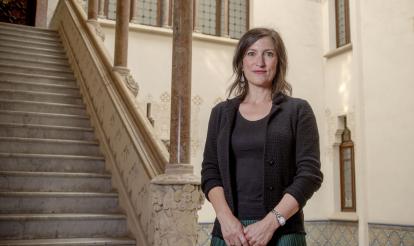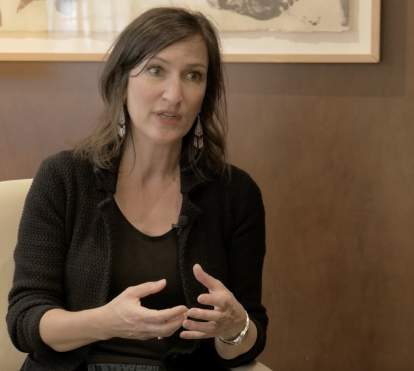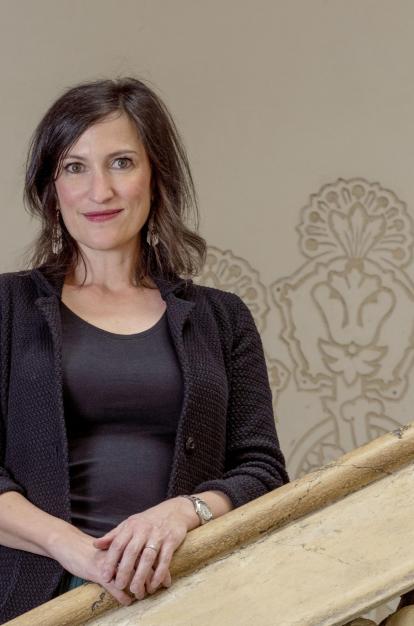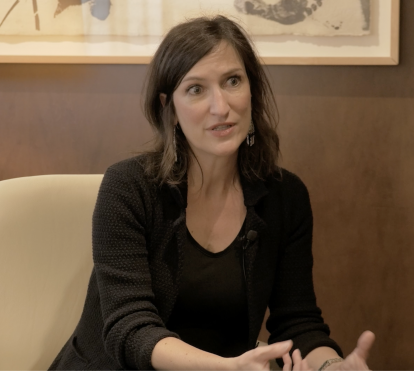
You are reading:

You are reading:

12.06.25
7 minutes readSend your questions to:
Chief Executive Officer at Philea and President of the Board of Directors of Enabel
Request interviewThe philanthropy sector is going through a decisive moment. Foundations and organisations dedicated to the common good are being forced to adapt to an increasingly complex international environment. In this context, Delphine Moralis, CEO of Philea (Philanthropy Europe Association), a platform that brings together the philanthropic ecosystem in Europe, analyses the immediate challenges philanthropy faces both regionally and globally.
As a community of organisations, our mission is to enable, empower and encourage foundations and philanthropic organisations to build a better present and future by driving forward collective ideas and actions, and by giving a voice to the sector in Europe. In our vision, philanthropy fully uses its potential to shape and support pluralistic, just and resilient societies focused on people and the planet.
The world of philanthropy is a very diverse ecosystem, but when we created Philea three years ago we asked our members, who represent a broad cross-section of the philanthropic landscape, about the key areas where they believed philanthropy should invest over the next decade. They responded loud and clear: climate, democracy and equality.
Since the pandemic, we have seen operational practices within foundations shift towards a more trust-based approach, with an increased emphasis on participatory forms of philanthropy.
We are also seeing organisations engaging in deep reflection about their own internal structures to ensure diversity in leadership and to apply the principles of diversity, equity and inclusion throughout their activities.
In addition, there is ongoing deliberation about the duration of funding cycles and the strategic cycles of organisations. Some foundations have opted for very radical approaches, such as deciding to close and spend all their funds within a certain period of time, believing this to be the most efficient course of action at the moment. Others, by contrast, are choosing to do exactly the opposite: to remain in perpetuity and invest counter-cyclically, so they can allocate the greatest amount of resources to society during times of more serious crises.
Drafted together with all Philea members, it is a call to European institutions to facilitate cross-border philanthropy and to engage in creating a single market for the sector. It seeks to break down barriers so that philanthropy can reach its full potential and contribute to tackling the major challenges of our time. For example, it is estimated that cross-border donations cost the sector around 100 million euros a year – funds that could be invested in causes we care about. At the same time, bureaucracy also creates obstacles to carrying out this work of solidarity and philanthropic activity.

Unfortunately, the context is becoming more complex in some parts of Europe and also globally. We are working in an increasingly polarised and hostile environment in which philanthropy must face scrutiny and a decline in trust in institutions.
Some recent developments are already having a direct impact. The dismantling of the United States Agency for International Development (USAID) has created a significant gap in terms of the support that existed and the donations that were directed to vulnerable communities around the world, including in Europe. We are also seeing that European governments – such as that of my own country, Belgium, as well as those of Germany, Finland and many others – are reducing their Official Development Assistance (ODA) and cutting back investment in other sectors that are at the heart of philanthropy.
We are also observing a shrinking of civic space. In Central and Eastern Europe we have witnessed worrying developments, such as the introduction of foreign agent laws that severely restrict the ability to make cross-border donations. There have even been smear campaigns against civil society organisations and philanthropic actors, especially those investing in areas related to democracy or the public sphere. These actions require us to be very transparent and articulate about our role and place in the ecosystem, and to stand together in defence of the values that truly unite us.
This context compels us to come together even more closely and to reflect on how we can use our voice to firmly defend philanthropic freedom. It is absolutely essential to maintain closer collaboration and to invest in networks that serve as a backbone for the sector.
Philanthropy is one actor within the ecosystem. It works alongside governments, markets and civil society. Philanthropy can think and invest in the long term – something that governments, which hold elections every four years, cannot do by definition. Nor does it need to answer to shareholders, as the private sector does. It therefore has that unique ability to take risks, innovate and think long-term, and if it does so thoughtfully, it can be of great help in strengthening the interaction between all parties: NGOs, the private sector and governments.
At the national level, the ”la Caixa” Foundation plays a very important role in areas such as child poverty, helping people return to the job market, medical research and the promotion of arts and culture.
As a partner and member of Philea for 26 years –even before we became Philea– the Foundation also contributes by investing time and learning from other foundations within our thematic networks. In addition, Àngel Font, assistant general manager of Research and Fellowships at the ”la Caixa” Foundation and executive director of the CaixaResearch Institute, is the current president of Philea. So the Foundation has also contributed to shaping Philea’s vision and mission. As one of the largest foundations in Europe, the ”la Caixa” Foundation is actively involved and invests in these collaborations and international relationships, and at Philea we hope this will continue to be the case.

People connect with causes depending on their culture and personal experience. However, we are seeing certain trends in this regard: according to a recent report by the Fondation de France, more and more young people in France are setting up foundations to contribute to philanthropic work. On the other hand, the Charities Aid Foundation report notes that, for the first time in years, there has been a decline in donations from young people in the UK, who did not feel connected to charitable work. This is a call to action to consider how we can encourage generosity in society. The good news is that philanthropy and love for humanity is something we all share in one way or another.
Given the current global context and in line with our strategic priorities, we have decided that 2025 will be our Year of Equality. We are now working closely with our members to understand the relationship between equality and power in the field of philanthropy.
We are also continuing to build networks and working groups to bring together people from across the ecosystem who wish to learn together and collaborate on topics such as organisational development.
In addition, we remain engaged with European institutions. We are excited about the launch of the European Commission’s Civil Society Strategy and have also contributed to the consultation on the multiannual financial framework.
Of course, at the same time, we continue to support foundations in seeking inspiration to design a better future for philanthropy, with foresight, anticipation and by incorporating useful new methodologies.

The world has changed significantly in a very short time, and the challenges for philanthropy have grown – from the needs of beneficiaries, partners and the communities we serve, to the philanthropic environment itself, which now faces new obstacles and barriers, such as societal polarisation and democratic backsliding. Society’s needs in areas like the climate crisis and growing inequality demand that philanthropy reinvent itself quickly and become more courageous, persistent and determined.